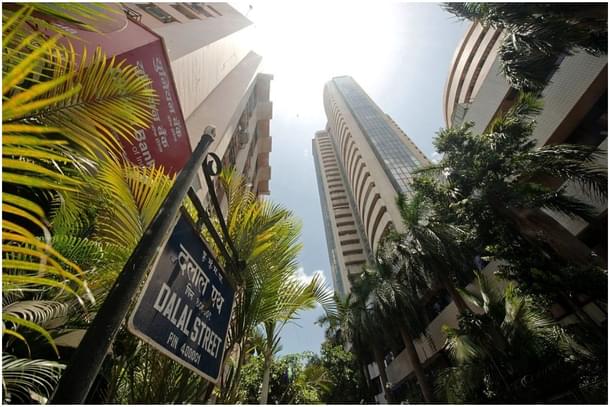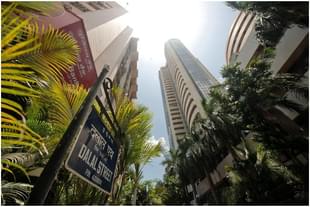Business
Brokerages Downgrade Indian Markets Citing High Valuations, But Upgrade China
Sourav Datta
Oct 27, 2021, 02:59 PM | Updated 02:59 PM IST
Save & read from anywhere!
Bookmark stories for easy access on any device or the Swarajya app.


Japanese brokerage Nomura has downgraded the Indian stock market over concerns about high valuations. The brokerage has downgraded India from “Overweight” to “Neutral” as the markets have seen a strong run up recently, and could face potential headwinds — resulting in an unfavourable risk-to-reward ratio.
Indian companies have been seeing lower earnings on the back of higher inflation. In addition, the Reserve Bank of India could change its dovish stance if inflation continues unabated.
Nomura also highlighted that there are some signs of a potential fall in demand.
Several Indian stocks are now trading above their pre-pandemic valuations though the economy has not recovered yet. The analysis by Nomura indicated that around 80 per cent of Indian stocks now trade above their 2019 Price-to-Earnings and Price-to-Book ratios.
Indian indices have outperformed both MSCI World and the MSCI Emerging Market indices by a large margin.
Swiss brokerage UBS has allotted an “Underweight” rating to India citing macroeconomic issues and market valuations. The brokerage expects the earnings growth to lose steam going forward, and expects growth at a low pace. It has labelled India as “extremely expensive”, and has downgraded it along with Australia and Taiwan.
Interestingly, both the brokerages highlighted Chinese markets’ relatively low valuations compared to India. Chinese markets have been underperforming for a few months as the government cracks down on technology behemoths.
In addition, the Evergrande crisis has added to investor fears of a series of defaults in China. Several property companies have already defaulted on their debt payments.
Consequently, India is trading at a large premium to the Chinese markets.
According to the report by HSBC, FTSE India is trading at a premium of 95 per cent to Chinese stocks. Indian indices are valued at an earnings multiple of around 22-23 times.
In contrast, the Chinese stocks are trading at a forward price-to-earnings ratio of around 13. Several large brokerages are overweight on China.
Further, a survey by the Bank of America has indicated that global fund managers are turning negative on emerging markets. The allocation to emerging markets like India, has fallen to the lowest levels since September 2018.
So far, Indian markets, that had seen strong inflows from foreign portfolio investors, have seen a decline in inflows. FPI net inflows in equities stood at Rs 13,154 crore in September, whereas October saw net outflows of Rs 7,014 crore. Downgrades by brokerages could cause a further outflow of funds from the markets.
Nevertheless, several experts and domestic investment houses have turned cautious about investing in the markets. The Indian markets might have run ahead than the underlying fundamentals would warrant.
The immense liquidity in the system, receding pandemic fears, and increasing retail money being pumped into the system through direct and indirect means has propelled the markets upwards so far.
Unique investors on the NSE crossed the 50 million mark in October. In addition, the systematic investment plan in the markets hit a record high of Rs 10,351 crore ($ 1.4 billion) in September 2021.





